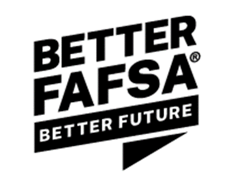 Better FAFSA Information
Better FAFSA Information

The FAFSA Simplification Act, also known as the Better FAFSA will be available in December 2024. The resources below support the Better FAFSA application process, along with the other up-to-date resources on this webpage.
Changes that are coming to the FAFSA are a more streamlined application process, expanded eligibility for federal student aid, and a new user experience for the FAFSA form.
- FAFSA Student Assistance Resources
- Better FAFSA sample letter to students and families.
- FAFSA Changes Overview
- Better FAFSA Infographic for professionals
- Financial Aid Bootcamp: How to Prepare for the 2024 – 2025 FAFSA Form YouTube playlist for PARENTS and for STUDENTS
- Wisconsin Educational Opportunities Program (WEOP) is currently working with high schools across the state of Wisconsin to get them ready for The Better FAFSA which is launching in December.
- Active Resource Links: NCAN, Federal Student Financial Aid FAFSA Form and FSA ID creation
Overview
The Free Application for Federal Student Aid (FAFSA) is a federal program through the US Department of Education used to apply for financial aid for college or career/technical school. Federal student aid includes grants, student loans, and work study. The data from the FAFSA application is used by post-secondary schools to determine federal aid eligibility. The FAFSA may also be required to determine eligibility and awards for state or school aid and various scholarship opportunities.
Promoting FAFSA Filing

Promoting FAFSA completion is a vital step to students' attainment of their post-secondary training goals. Providing all students with information about the why and the how of FAFSA completion ensures universal and equitable access to post-secondary training.
FAFSA Filing Support

Using a tiered approach provides appropriate levels of FAFSA support, Tier I includes FAFSA campaigns, financial aid events, advisory/homeroom periods, classroom lessons, and resource sharing. Tier II includes offering mini-workshops or setting up office hours. Tier III includes meetings with students who are stuck or have unusual circumstances, and referring out.